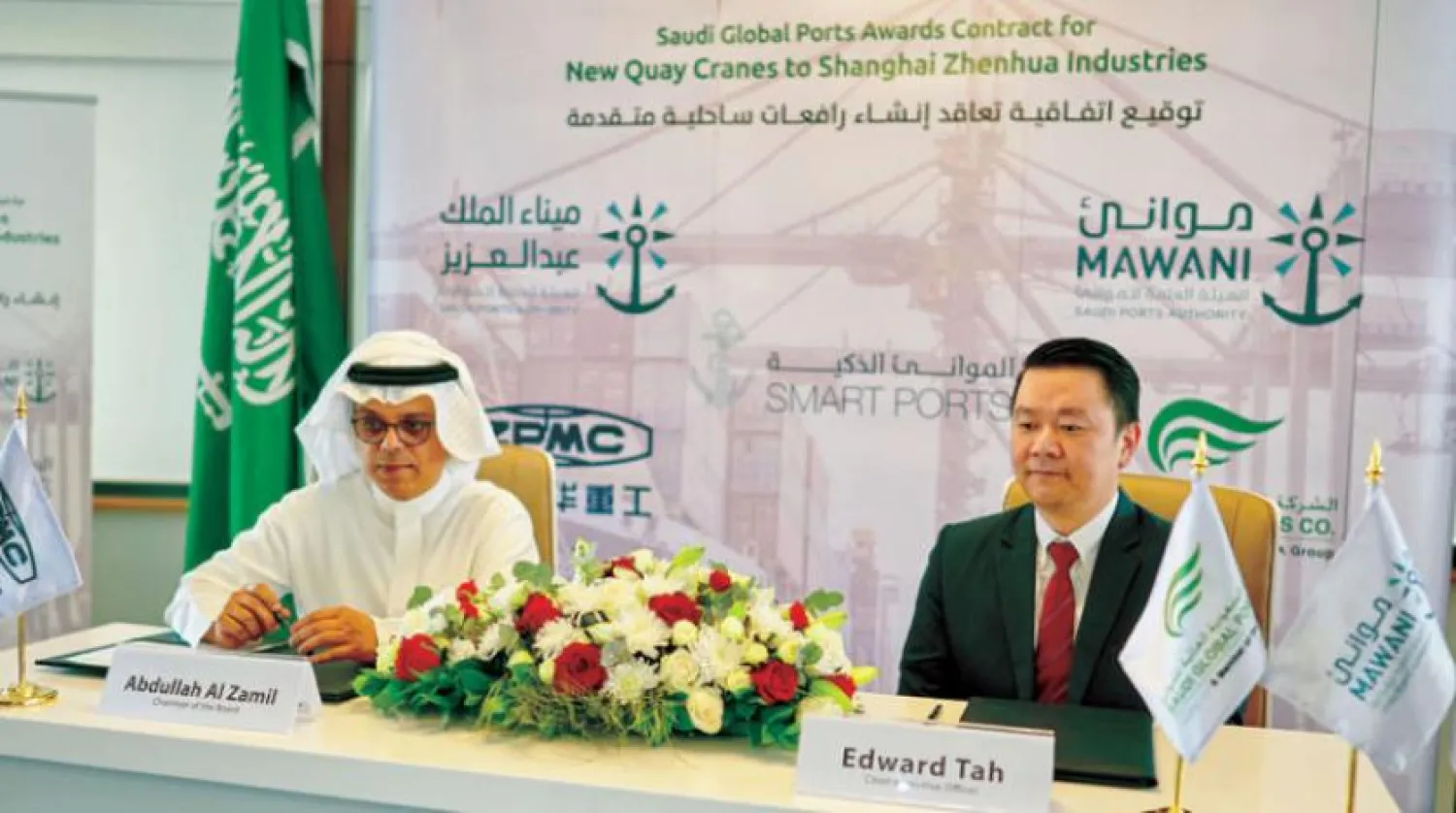Under the supervision of the Saudi Ports Authority (MAWANI), Saudi Global Ports (SGP) and Shanghai Zhenhua Heavy Industries Company (ZPMC) signed on Thursday an agreement to manufacture three quay cranes at King Abdulaziz Port in Dammam.
In a press statement, MAWANI said that the new cranes would have a minimum outreach of 25 rows to enable the handling of next generation giant vessels.
The deal was signed by Saudi Global Ports CEO Edward Tah and Liu Chengyun, Chairman and President of ZPMC, in the presence of Omar bin Talal Hariri, President of Saudi Ports Authority, and Captain Fahad Al-Amer, Director General of King Abdulaziz Port in Dammam, as well as Saudi Global Ports Chairman Abdullah Al-Zamil and Wan Chee Foong, Regional CEO, Middle East and South Asia, and Head of Group Business Development at PSA International.
Hariri said that the agreement came within the framework of the Smart Ports Initiative, which was launched by MAWANI this year to enhance competitiveness and keep pace with the continuous changes in the maritime sector industry.
For his part, Al-Zamil underlined efforts to transform the Kingdom into a global logistic power in support of the goals of Saudi Vision 2030, by considering the possibilities of using renewable energy in future coastal crane operations, as well as promoting the Green Saudi Initiative and its global participation in limiting climate change.
Speaking on the occasion, Wan Chee Foong said: “PSA is pleased to have worked alongside Saudi Global Ports to develop the optimal design and specifications of the quay cranes and support the rigorous evaluation process.”
He added: “PSA’s commitment to the transformation of King Abdulaziz Port into a leading port will ensure Saudi Global Ports remains relevant and future-ready, realizing the Kingdom’s plans to become a global logistics hub.”









